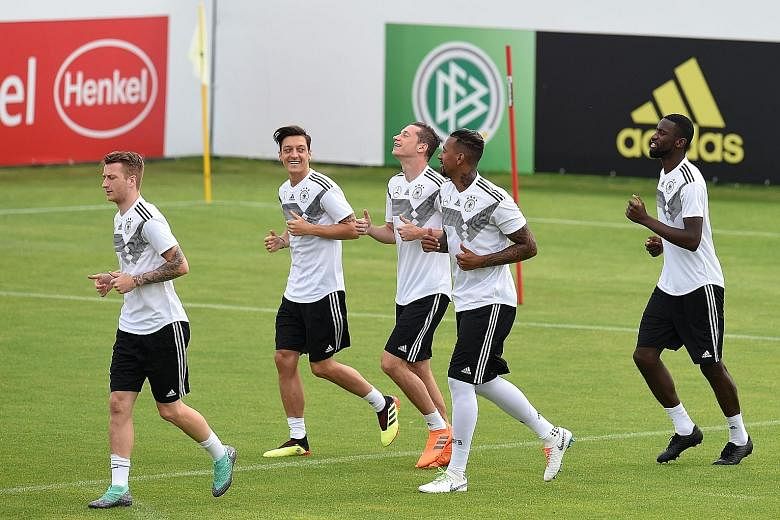More than one billion people - one in seven of the global population - tuned in to watch the 2014 World Cup final between Argentina and Germany. But "without insurance there would be no World Cup, no Olympics or little organised competitive sport", says Mr Michael Furtschegger, head of entertainment international at insurer Allianz Global Corporate & Specialty.
"For few would take on the risk required to stage an event, particularly one the size of the World Cup."
Allianz is helping to insure the 2018 World Cup.
Fifa has earmarked US$134 million (S$179 million) for insurance for clubs whose players get injured - over a quarter of the prize money on offer to the 32 competing teams.
Yet, Fifa player insurance is only a drop in the overall insurance requirements. By the time players take to the pitch at one of the 12 venues across Russia, almost every aspect will be covered.
Both Russia and Fifa have insurance that pays out if a game is abandoned or moved to another location, or even if the entire World Cup is cancelled.
While the World Cup has yet to be disrupted, an outbreak of foot and mouth disease in 2001 caused several Six Nations rugby games to be postponed. In 2011, an earthquake hit rugby-mad Christchurch in New Zealand, forcing eight games of the Rugby World Cup scheduled for later that year to be shifted. This created a problem for organisers. Ticket holders were offered either refunds or new tickets at the other venues, leading to a fall in revenue.
For the 2018 World Cup, those that have bought risk cover, besides Fifa, include broadcasters, sponsors, travel firms, airlines and retailers. For the 2010 World Cup in South Africa, Lloyds estimated the insurance at US$9 billion, including US$4.8 billion for stadiums and training venues.
Mr Furtschegger says: "Take telecast rights. If the opening ceremony is delayed even for a few minutes by (a) power failure, that will affect the broadcasters because they've got advertising slots in place. There will be insurance covering such an interruption."
Fifa also has an insurance programme to cover injury to the players, payable to the national teams, while the national teams have insurance, such as liability and personal accident cover, for their players, and the players can have their own cover to protect their earnings.

